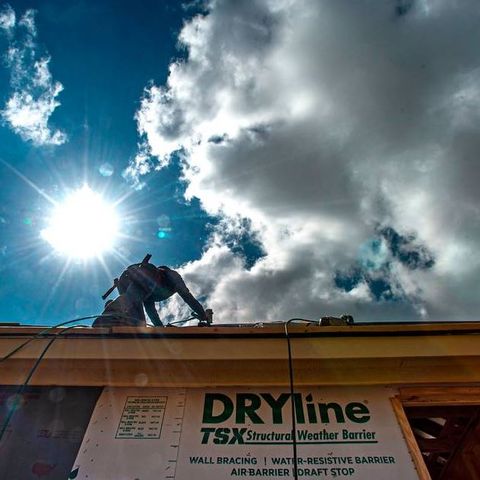Protecting Workers from Deadly Heat

Scarica e ascolta ovunque
Scarica i tuoi episodi preferiti e goditi l'ascolto, ovunque tu sia! Iscriviti o accedi ora per ascoltare offline.
Descrizione
Leslie is joined by Steve Sallman, Director of the United Steelworkers Health, Safety and Environment Department, where he's worked for over 19 years. The two discuss the urgent and timely...
mostra di piùThe two discuss the urgent and timely topic of protecting workers from deadly heat.
As the planet gets hotter, and wide swaths of the United States are seeing record temperatures, heat is becoming an ever more urgent workplace health and safety issue – in both in-door and out-door occupations.
It’s no surprise that unions work to provide solutions.
The USW works to negotiate common sense solutions into their contracts like rest breaks, ample supplies of water, electrolytes, and proper ventilation.
UPS drivers made this a centerpiece of their recent contract negotiations too, signaling that this was so significant that they were willing to strike as necessary.
They ultimately got what they needed, including fans and air conditioning in their trucks.
However, all workers need protections, starting with a national standard on heat exposure like workers have for other hazards like falls and asbestos exposure.
Without proper controls and protections, working in the heat can cause illness and even death.
According to the BLS, there have been 436 work related deaths caused by heat exposure since 2011, and an average of 2,700 cases per year of heat-related illness.
The real number could be much higher, given that many workers who are exposed to extreme heat are undocumented and reluctant to come forward.
Even when it’s not immediately obvious, heat is harming a worker’s body, which can cause them to suffer long-term consequences, like renal damage.
The Biden administration is taking this threat seriously, enabling workers to make some headway.
Just last month, President Biden ordered the DOL to issue the first ever hazard alert for heat.
In the same announcement, the department also announced that OSHA would intensify enforcement of existing safety provisions when it comes to heat.
Biden also announced funding to improve weather forecasting, as well as additional money for clean drinking water in Western states impacted by drought.
A handful of states – California, Colorado, Washington, Oregon and Minnesota – also issued their own heat exposure standards. Only Minnesota and Oregon have protections for indoor workers as well.
But corporations and the Republicans who serve them are unfortunately pushing back hard, lobbying against protections and, in some cases, even overturning them.
Business groups in Oregon are suing the state over heat related workplace protections.
Even worse, Republicans in Texas earlier this summer even took the extreme step of passing a law that eliminates local ordinances requiring water breaks for construction workers.
After Austin in 2010, and Dallas in 2015, required water breaks, reported heat illness numbers in Texas dropped from 770 to 170.
Now workers are bracing for what comes next.
This isn’t just a matter of lost productivity, though heat can impact that as well. It’s truly life and death.
In June, a postal worker in Texas collapsed and died in triple digit heat.
This summer, a Houston-area construction worker also collapsed and died of hyperthermia.
Countless more will soon be at risk once the new Texas law goes into effect.
The USW continues to fight for workers, as demonstrated by the union’s comments to OSHA in the federal register.
Until then, the USW continues to push for an OSHA standard and works to protect workers through their contracts and other health and safety work.
The website for the United Steelworkers is www.USW.org.
Their handle on Twitter and Instagram is @steelworkers.
(Image Credit: David Montesino/star-telegram)
Informazioni
| Autore | Leslie Marshall |
| Organizzazione | Leslie Marshall |
| Sito | - |
| Tag |
Copyright 2024 - Spreaker Inc. an iHeartMedia Company

Commenti